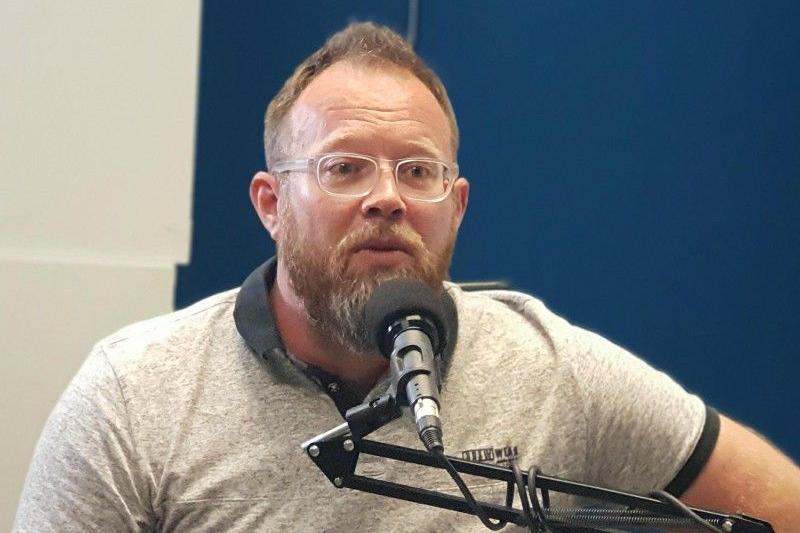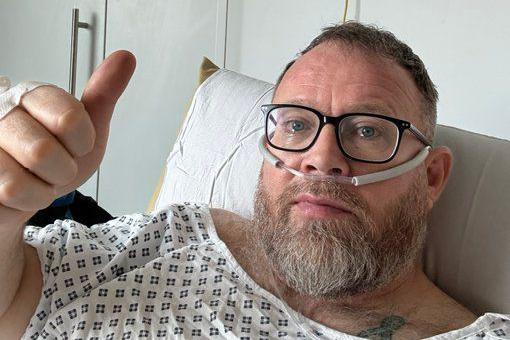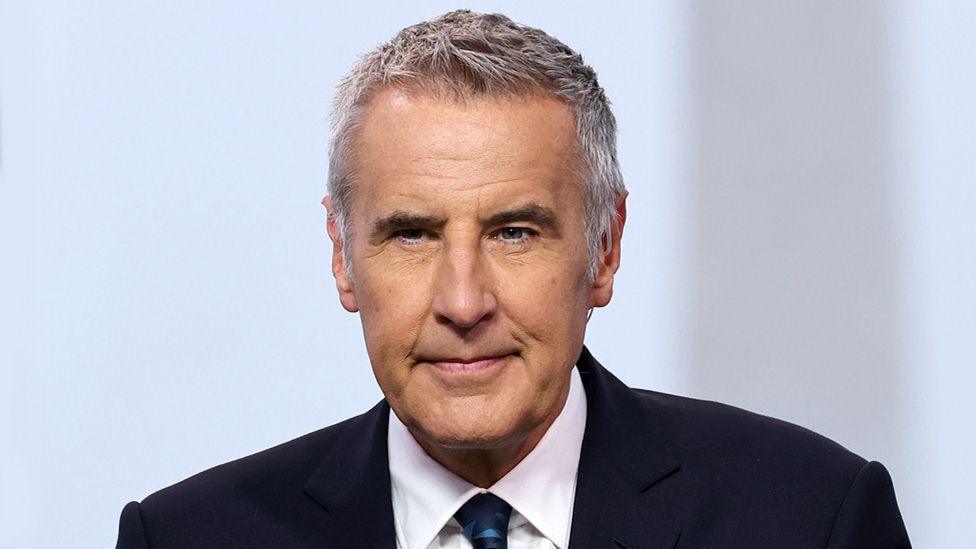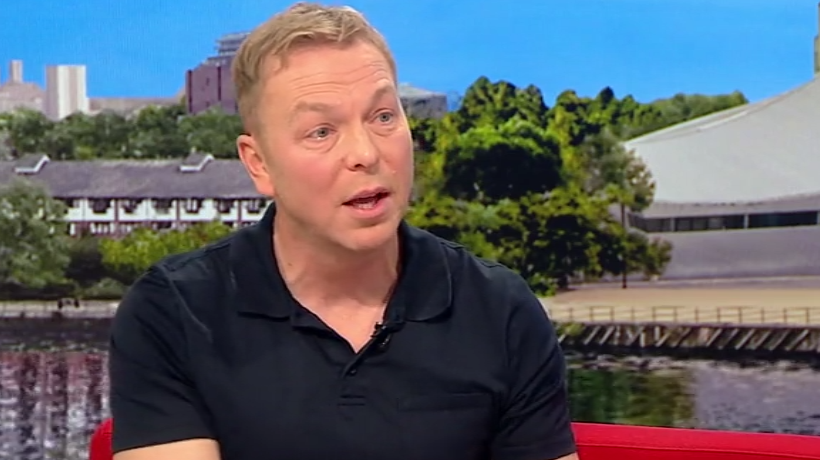Dad with prostate cancer urges men to get check-ups

Neil Maggs was persuaded to have a test after he told a nurse he urinated often
- Published
A father-of-three has advised men not to put off routine check-ups after his own doctor's visit revealed he had stage three prostate cancer.
Documentary maker Neil Maggs, 50, told BBC Radio Bristol presenter Joe Sims he could have died within 18 months had he not had prostate removal surgery in March last year.
"Just go and get it done – it's better to be alive," said Mr Maggs, from Fishponds in Bristol.
He also spoke about the physical repercussions of the operation, which he said were "a massive wake-up call", affecting his mental health and sense of identity.
"If your identity is, 'I'm a man, I'm a virile man', then suddenly you're having to wear a nappy at the age of 50 and can't get an erection, it becomes like a midlife crisis," he said.
Neil Maggs: "A PSA test saved my life"
Bristol journalist Neil Maggs opens up to Joe Sims about facing prostate cancer.
Symptoms of prostate cancer do not usually appear until the prostate is large enough to affect the tube that carries urine, according to the NHS.
The disease tends to affect over-50s, and although there is not a definitive test for it, a prostate-specific antigen (PSA) test can indicate whether cancer is present.
As the cancer is slow-growing, it can be there for decades before it is noticed.
Television presenter Dermot Murnaghan, cyclist Chris Hoy and former US President Joe Biden are all living with prostate cancer.
Mr Maggs said he was convinced into going for a routine check-up for over-40s in January 2024, after telling a nurse he urinated often.
He later had to have a biopsy – which he described as "arguably the worst part" of his experience.
"The needle to numb you, it felt like someone was squeezing my balls, and punching me in the face at the same time," he said.

The father-of-three had prostate removal surgery in March 2024
The diagnosis came back within a week.
"The moment I knew was when the nurse came out and bowed her head.
"I was basically near to stage four, on stage three and a half – stage four is basically fatal where you need palliative care and you will die from it," he said.
By the time his surgery was scheduled, he had "fallen into a sense of thinking, 'this could be it'".
"I was kind of ready for the possibility," he said. "I wanted to be present and be with my family – it's a feeling that's kind of stayed with me."
'Moments that get you'
But Mr Maggs, whose children are 13, nine and eight, said nothing could have prepared him for the mental struggle after the prostate removal surgery.
"For some men who have never faced their demons, it's a massive wake-up call," he said.
He said after the operation "there are moments that can get you".
"I was less prepared for that," he said. "Your testosterone is less so there is a physical thing that affects your mental health."
Mr Maggs said "quite a few of my mates and family have had a check-up" following his diagnosis and surgery.
He now has a PSA check every two months and has been told his current levels and prognosis are both good.
Get in touch
Tell us which stories we should cover in Bristol
Follow BBC Bristol on Facebook, external, X, external and Instagram, external. Send your story ideas to us on email or via WhatsApp on 0800 313 4630.
Related topics
- Published23 June

- Published14 July

- Published7 February
